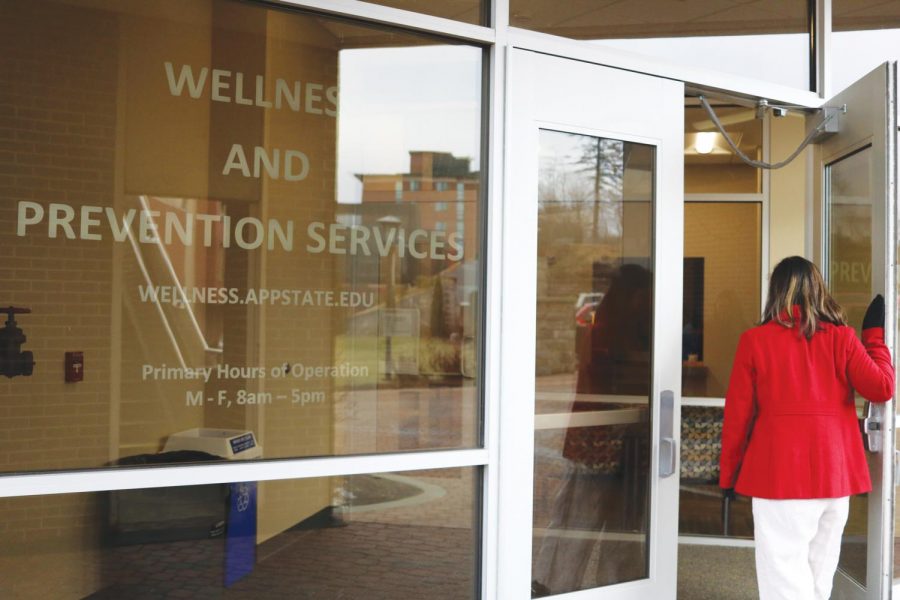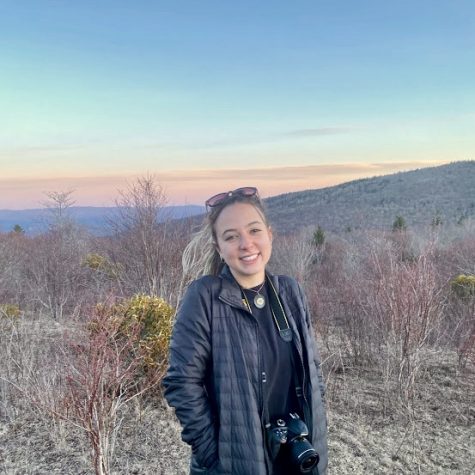Wellness and Prevention Services help students by teaching spirituality
Throughout the academic year, App State’s Wellness and Prevention center offers a variety of programs and resources for students to support their well-being. Programs are focused on 8 different dimensions of wellness, and all students are welcome to attend programs and events free of charge.
February 2, 2019
Wellness and Prevention Services is working to inform App State about and provide resources for spiritual wellness.
“The concept of spirituality is a value system, which can be connected or not connected to a formalized religion or faith,” said Alex Howard, director of Wellness and Prevention Services.
Howard said often times people express spirituality through religion, though people’s value system extends beyond just religion.
“For many people, religion is how they practice their spirituality, which is fine,” coordinator for student mental wellness Elisabeth Cavallaro said. “But for other people, religion is an institution and you don’t have to be religious to be spiritual.”
Cavallaro said people can find spirituality being in nature, meditating, having conversations with people or hiking.
“One way that people can practice their spirituality is making sure they spend time to actually investigate what their values are,” Cavallaro said.
Cavallaro said a large part of spirituality is finding a purpose in life and living up to that purpose.
“We teach meditation here on campus because a lot of times that time for introspection allows you to think about ‘What do I value?’ ‘What do I feel like the purpose of life for me is?’ and actually living up to those things,” Cavallaro said.
Spirituality is one of eight dimensions of holistic wellness, according to Wellness and Prevention Services.
“Most of the dimensions actually overlap. Even though they’re separated into eight different things, they’re pretty much all interconnected somehow,” Cavallaro said.
“It can definitely be linked to all of the dimensions. It’s really how you’re grounding yourself, how you’re valuing what you’re doing,” second-year graduate student studying student affairs and administration Hallie Reed said.
Reed is an intern with Wellness and Prevention Services.
“It can definitely look very different for each individual and it could connect more directly to each of those dimensions,” Reed said.
The eight-dimension model of wellness is an accepted model of holistic wellness, Howard said.
“Part of the inherent nature of finding or recognizing what your spiritual needs are is the acceptance that it’s about exploration,” Howard said. “Because it is meaning-making, and you can’t make meaning of something if you have a very narrow view because you have not explored other options.”
Reed added that spirituality is an individualized process.
“I work under the definition of spirituality being more of that meaning-making process, how you define your values and beliefs and can look a variety of ways,” Reed said.
Practicing spirituality can have many benefits on a person, Howard said. He said science shows that when individuals are connected through community, they have better engagement with others and can better manage stress, as well as contribute to their surrounding environments.
Reed said exploring philosophical questions about life and meaning are important for traditional college-age students.
“For college students there is a substantial relevance and importance to exploring and recognizing that your spirituality and spiritual wellness is paramount here at Appalachian and beyond,” Howard said.
On Jan. 22, Wellness and Prevention Services hosted a Spiritual Wellness Fair to promote the importance of spiritual wellness by introducing students to ways of implementing spirituality into their lives.
“Through spiritual wellness, I hope students get to a place where they question things and (that) gets them to a place where they understand what invigorates them,” Howard said. “And we get to a greater state of community where people can thrive.”











